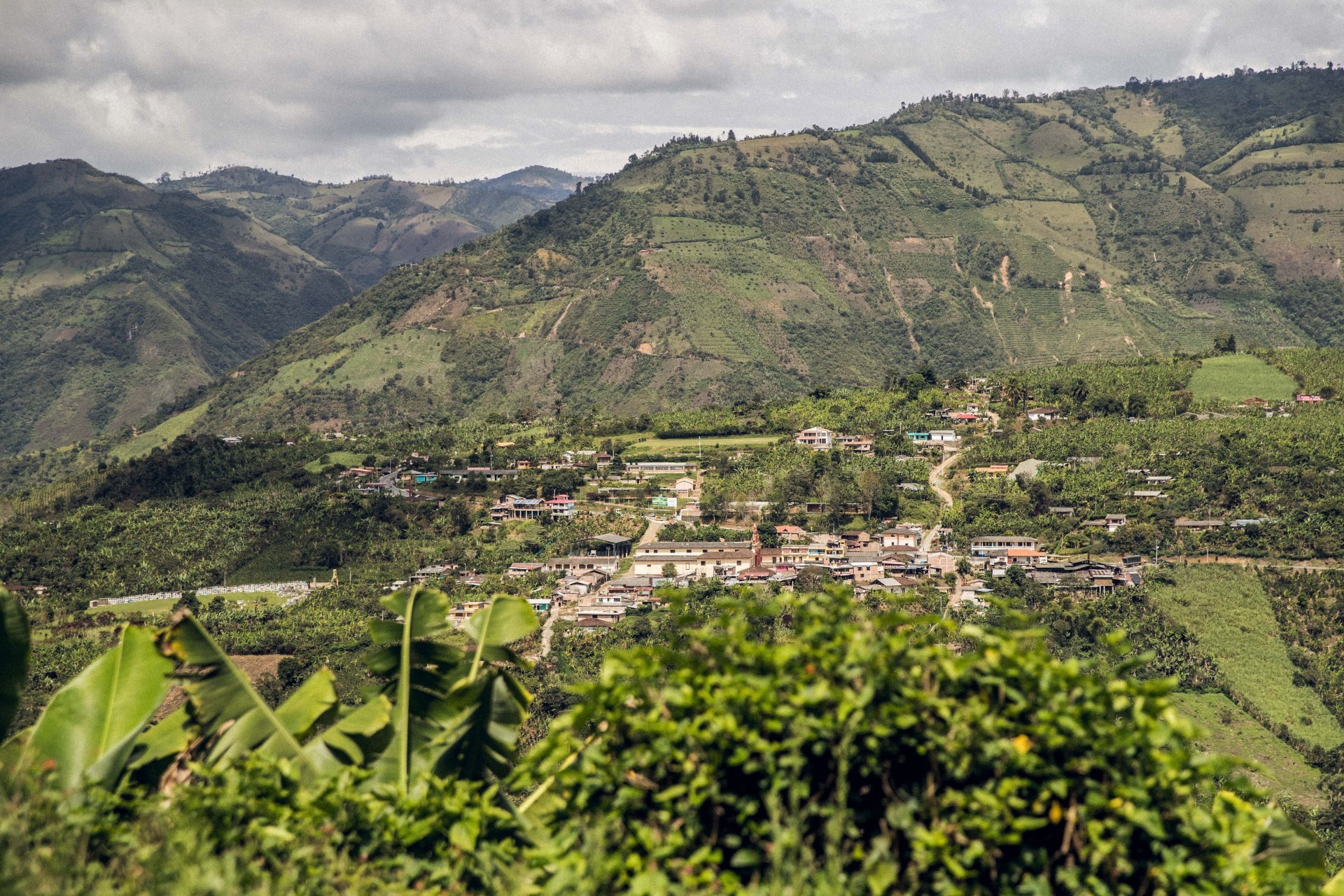Colombia Narino Arcos Meneses-Jojoa Rodriguez Blend GrainPro
Bags 0
Warehouses Oakland
Flavor Profile Raspberry, orange, green apple, caramel
Out of stock
About this coffee
Grower
Rosario Fanny Arcos Meneses & Flor Omaira Jojoa Rodriguez
Altitude
1700-2000 masl
Variety
Castillo
Soil
Volcanic loam
Region
Consacá, Nariño, Colombia
Process
Fully washed and dried inside solar dryers that provide protection from the rain
Harvest
April - July
Certification
Conventional
Coffee Background
Consacá is a Nariño’s second largest coffee producing municipality. The town itself is perched on the western slope of the formidable Galeras stratovolcano, a central fixture in this part of the Nariño department and whose continuous activity, documented since the 16th century, plays a significant role in the region’s terroir. Here in Colombia’s southern Andes the landscape seems to explode outward in scale compared to the tightly-wound ridgelines of Huila, or the plateaus of Cauca; slopes of farmlands seem to stretch to the sky and the valleys seem to have no bottom.
And coffee, as you would expect in these conditions, is absolutely thriving. Fertile volcanic soils, intense sunshine, wide diurnal temperature swings, and a high and dry climate all contribute to a very gifted environment for quality coffee. This microlot is a combination of two women producers, Rosario Fanny Arcos Meneses of Finca Ojo de Agua, and Flor Omaira Jojoa Rodriguez of Finca La Lupita, both of whom farm just half a hectare of coffee each outside the town of Consacá in the more remote communities of San Rafeal and Bombona. Producers of this size are among the country’s smallest, and this particular Crown Jewel is likely one of the smallest multi-farm blends in existence. Combined, the final coffee is harmoniously buttery and sparklingly bright at the same time, with myriad acidic fruits, cocoa, and dulce de leche.
Harvests in this part of Nariño are typically community affairs: rather than pay cash for outside harvest labor, neighbors hand-pick one another’s coffee on a rotation, sharing the labor together. Both women process coffee on their farms by depulping, dry-fermenting, and washing with fresh water from the nearby Güitara river. Sra. Meneses patio-dries coffee for 8-12 days, whereas Sra. Rodriguez utilizes a parabolic greenhouse for drying, which typically takes 15 days.
There is a lot of promise here. The farming communities around the Galeras volcano include producers with decades of experience and delicious coffee who, only recently, have been given the traceability they deserve. It also includes many first generation coffee growers, certainly not new to commercial growing in such an environment, but who are planting coffee with specialty prices as an incentive. Which is why Azahar Coffee, the curator and exporter of this special and traceable blend, are providing ample encouragement.
Azahar originally began as a specialty roaster and coffee boutique in Bogotá serving Colombia’s top quality microlots to a developing local consumer base. In time, Azahar began making international connections to their farmer contacts and exporting green coffee, with top traceability and ambitious price transparency, to select buyers in a few northern markets.
The business has evolved to what is now a very sophisticated exporting model. Azahar partners with local grower organizations to identify coffees and producers of the highest potential, pull these aside from the usual export stream, and market them directly to buyers internationally on a quality-based pricing scale. The net effect of the intervention is often significantly more money than a farm could receive without the added exposure and marketing. Through Azahar, countless farms and communities, like those in outer Consacá, are being uncovered and sold globally with traceability not experienced before. And prices follow: the average farm gate price farmers receive is 25-50% above Colombia’s federal price.


